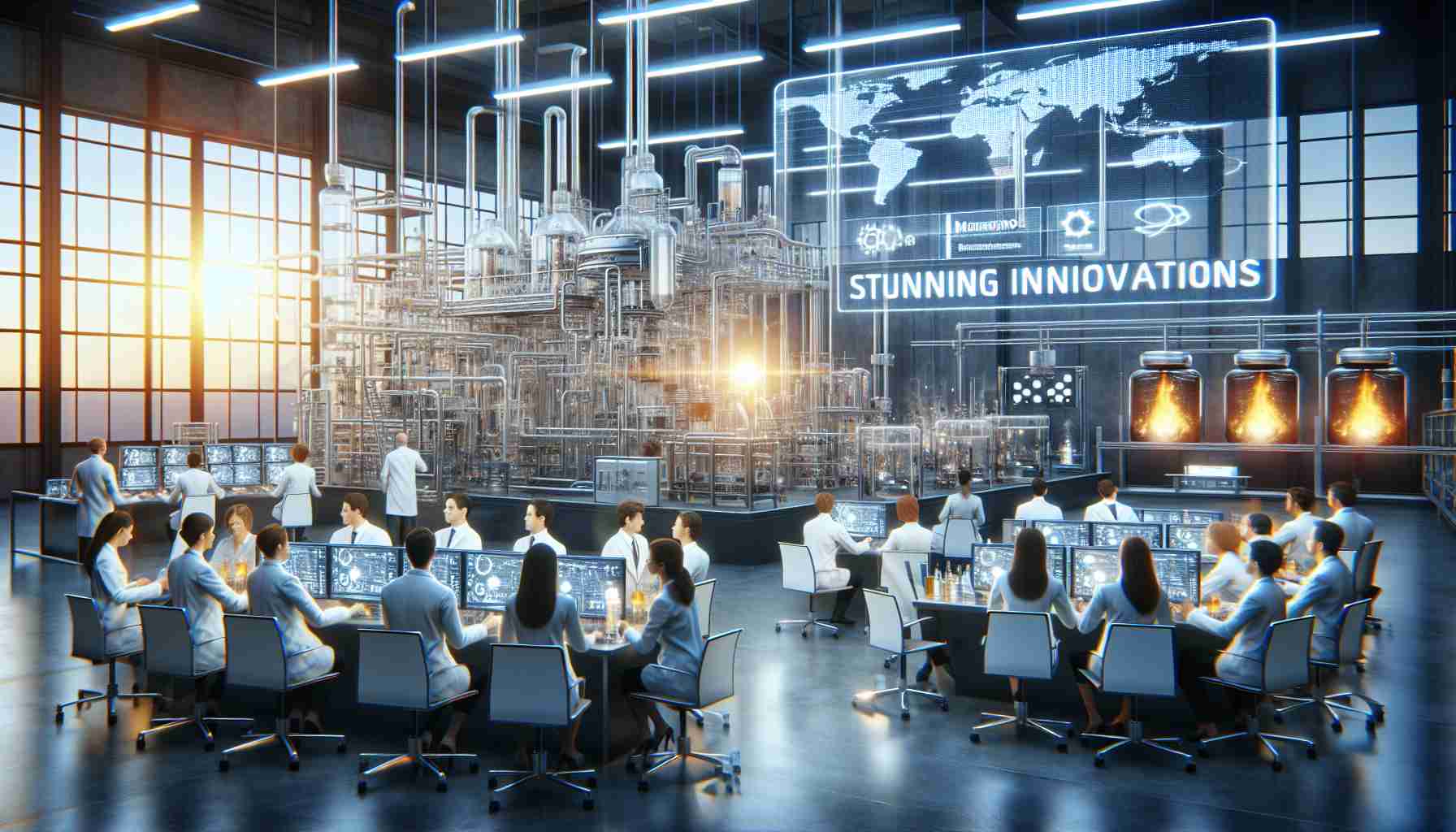
Revolutionizing Transportation with Methanol
Germany is taking a bold step forward in the transportation sector, shifting the spotlight from hydrogen to methanol as the next big solution for sustainable fuel. As hydrogen has been hailed for its green potential, recent advancements in methanol engines suggest a dramatic change on the horizon.
A notable engineering firm, MAN Energy Solutions, has introduced a cutting-edge four-stroke methanol engine designed to facilitate the transition to low-carbon operations. This innovation underscores a significant shift towards creating sustainable fuels that are not only efficient but also environmentally friendly.
Why Methanol is Gaining Traction
One of the standout benefits of methanol over hydrogen is its simplicity in storage and transportation. Methanol can be stored as a liquid at room temperature without the need for specialized, high-cost containment systems. This characteristic reduces logistical challenges significantly, allowing for easier integration into existing fuel infrastructure.
Furthermore, methanol can be produced from a variety of renewable sources, including agricultural waste and captured carbon dioxide. This versatility ensures a stable and sustainable fuel supply, making methanol a cost-effective alternative.
The Road Ahead
As Germany continues to lead the charge in sustainable energy, methanol-powered engines present a promising path toward a greener future. With its practical benefits and ability to align with current infrastructure, methanol could very well become the go-to fuel for the next generation of vehicles, proving that innovation can shape a cleaner tomorrow.
Is Methanol the Future of Sustainable Fuel in Transportation?
Introduction to Methanol as a Sustainable Fuel
Germany is making headlines in the quest for sustainable transportation by shifting its focus from hydrogen to methanol as a preferable alternative fuel. Recent advancements in methanol engine technology indicate a transformative trend in the energy landscape, suggesting that this versatile compound may redefine efficiency and sustainability in transportation.
Advantages of Methanol Over Other Fuels
Methanol’s rise in popularity is attributed to several compelling advantages:
1. Ease of Storage and Transportation: Unlike hydrogen, which requires high-pressure tanks or cryogenic storage methods, methanol can be stored as a liquid at room temperature. This simplicity significantly cuts logistical costs and enables seamless integration into existing fuel supply chains.
2. Diverse Production Methods: Methanol can be synthesized from various renewable sources, including biomass, agricultural waste, and even captured carbon dioxide. This diversity in production not only enhances its sustainability but also provides a pathway for circular economies in fuel production.
3. Compatibility with Existing Infrastructure: Since methanol can utilize current gasoline infrastructure, including pipelines and fuel distribution systems, the transition to methanol does not necessitate overwhelming investments in new technologies. This compatibility could lead to quicker adoption rates across different regions.
Future Technologies and Innovations
As companies like MAN Energy Solutions push forward with methanol-based technologies, several innovations are anticipated to further enhance the viability of methanol as a fuel source:
– Advanced Engine Designs: Continued improvements in engine designs will focus on enhancing efficiency and reducing emissions, making methanol a cleaner choice for transportation.
– Hybrid Systems: Future vehicles may integrate methanol engines with electric powertrains, optimizing efficiency and expanding the range of vehicle applications.
Trends and Market Analysis
The growing interest in methanol as a transportation fuel is reflected in industry trends. With governments and corporations prioritizing decarbonization goals, the global market for methanol fuel is expected to expand significantly. According to reports, the methanol fuel market could exhibit a compound annual growth rate (CAGR) of over 6% from 2023 to 2030, fueled by increasing commercial vehicle conversions and expanding infrastructure.
Potential Challenges and Limitations
While methanol poses several advantages, it is essential to consider potential drawbacks:
– Toxicity: Methanol is toxic if ingested, which necessitates careful handling and additional safety measures in storage and transportation.
– Policy and Regulatory Hurdles: The transition to methanol will require supportive policies and regulations, including incentives for infrastructure development and fuel use.
The Path Forward: Predictions and Insights
As we look to the future, predictions suggest an increasing movement towards methanol-powered vehicles, especially in sectors like shipping and heavy-duty transport, which traditionally rely on fossil fuels. As innovations in methanol technology continue to unfold, we can anticipate a more sustainable and efficient transportation ecosystem.
For further developments on alternative fuels and sustainable transportation innovations, visit Energy.gov.



